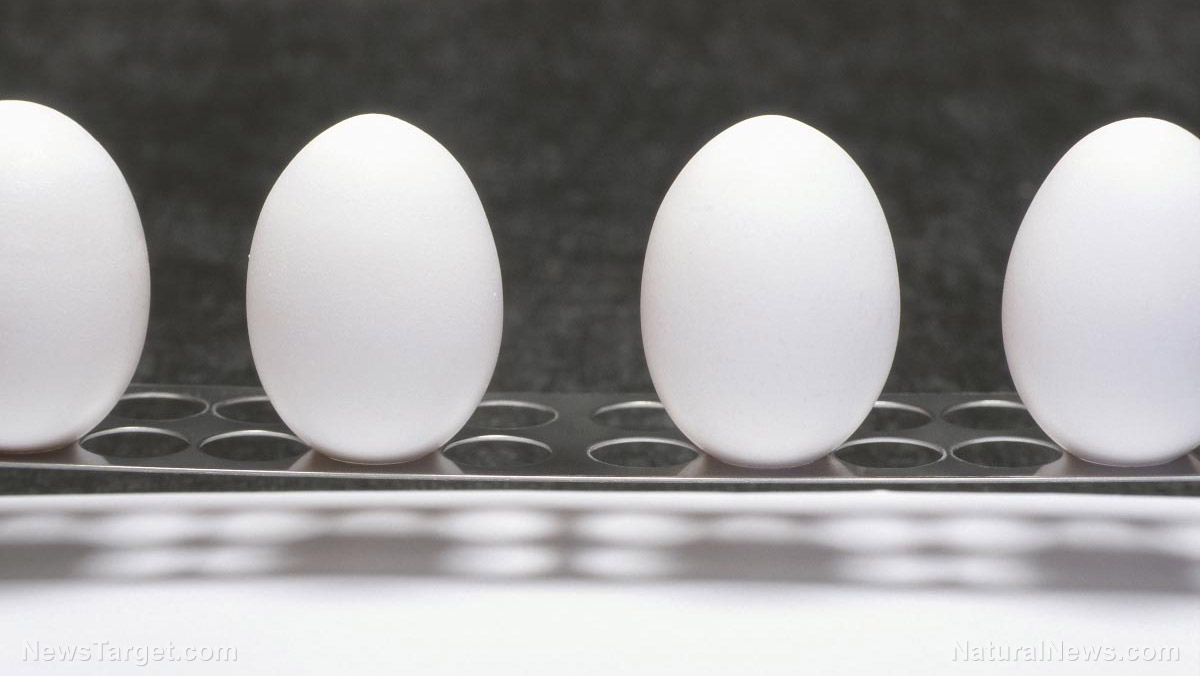 Parler
Parler Gab
Gab
- Eating 2 eggs daily reduced LDL cholesterol by ~6 points—but only when saturated fat intake was low.
- Saturated fat, not dietary cholesterol, directly spiked LDL and ApoB (a key heart disease marker).
- The egg diet increased small, dense LDL particles (linked to plaque buildup) while reducing beneficial HDL subspecies—revealing complex trade-offs.
- Study funded by egg industry, but researchers insist findings were independent—and align with emerging science absolving dietary cholesterol.
The great cholesterol lie: How eggs were framed
Since the 1960s, dietary guidelines hammered home one message: avoid cholesterol-rich foods like eggs or risk heart disease. Doctors told patients to ditch yolks, schools scrubbed eggs from cafeteria menus, and terrified Americans embraced bland egg-white scrambles—ironically drowning them in butter or processed oils. But the science never added up. As this study confirms, blood cholesterol responds far more to saturated fat (found in fatty meats, dairy, and tropical oils) than to dietary cholesterol itself. Yet institutions doubled down on the anti-egg narrative, ignoring real-world cultures like Japan—where high egg consumption coexists with low heart disease rates. Balance is important, but that means incorporating nutrient-dense whole foods, instead of greasy comfort foods. "The fear of eggs was a distraction," says Jon Buckley, lead researcher. "Saturated fat quietly fueled the crisis while we blamed an innocent food."The saturated fat trap: Why butter, cheese, and greasy meats are the issue
The study’s most damning revelation? Participants avoiding eggs but eating high saturated fat saw no LDL improvements—while egg eaters on low saturated fat diets did. Here’s why: saturated fats (like palmitic acid in meat and dairy) hijack liver metabolism, forcing it to produce more LDL. Eggs, by contrast, contain choline and omega-3s, which may counterbalance cholesterol effects when other fats are minimized. While these foods can be consumed in balance, for cardiac patients, a little may be too much. The takeaway:- Cook eggs in olive oil or avocado oil, not butter.
- Skip the greasy bacon and sausage. Instead, pair them with avocado or spinach.
- Choose low-fat dairy, raw milk, or non dairy alternatives. The whole milk and cheese, while providing their own health benefits, are the real culprit of added saturated fat.
Not a free pass: The egg diet’s hidden trade-offs
While the study busts myths, it also exposes nuances: egg consumption increased small, dense LDL particles (the most artery-damaging type) and reduced HDL4 (a protective sub-type). Does this mean eggs are dangerous? No—because context matters. For most people, the LDL-lowering effect outweighs particle shifts if saturated fat stays low. But cardiac patients should monitor responses carefully. Furthermore, poached or boiled eggs are better than fried eggs. For years, Big Pharma and processed food giants profited as eggs took the blame. Now, science corrects the record—but warns: eggs aren’t magic. They thrive in a balanced diet that shuns saturated fat and prioritizes whole foods. "Eggs are back," says Buckley. "But this time, eat them smart." Sources include: StudyFinds.org ScienceDirect.com Enoch, Brighteon.aiStudy: BEETROOT JUICE may hold the key to healthier aging
By Ava Grace // Share
U.S. targets Iranian elite’s global shipping empire in sweeping sanctions crackdown
By Cassie B. // Share
Top fruits to boost your health and the ones to avoid, according to a nutrition expert
By Belle Carter // Share
Japanese walking: The TikTok-backed fitness trend with science on its side
By Ava Grace // Share
Fiber helps regulate bowel movements and PROTECTS against DIABETES
By Lance D Johnson // Share
Passive heat therapy offers cardiovascular and immune perks similar to exercise
By Cassie B. // Share
Governments continue to obscure COVID-19 vaccine data amid rising concerns over excess deaths
By patricklewis // Share
Tech giant Microsoft backs EXTINCTION with its support of carbon capture programs
By ramontomeydw // Share
Germany to resume arms exports to Israel despite repeated ceasefire violations
By isabelle // Share










